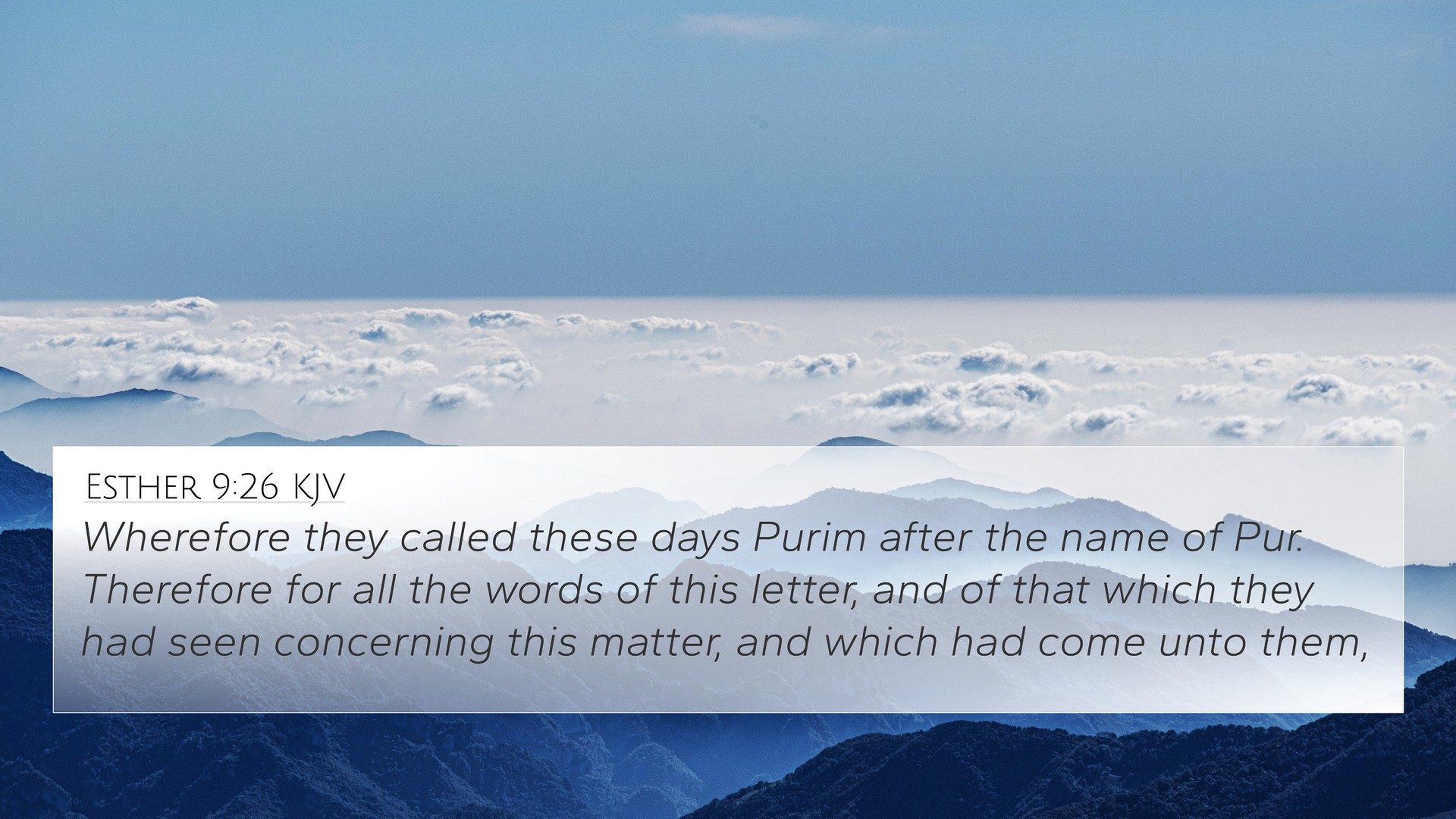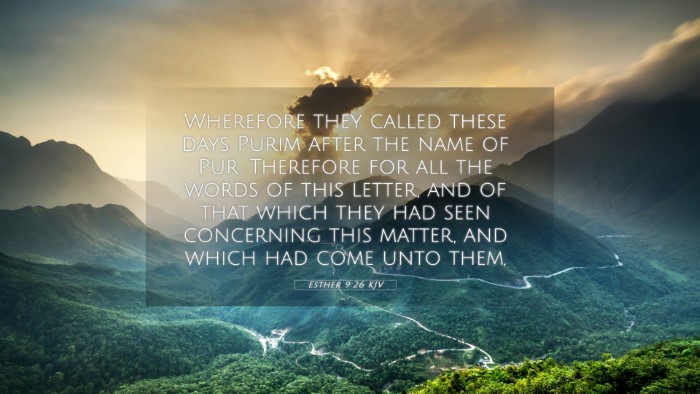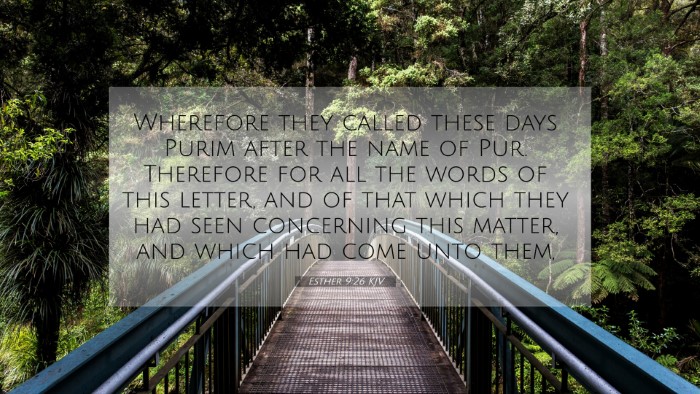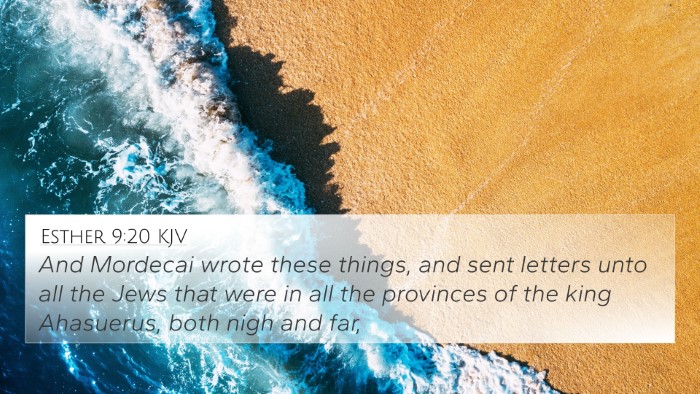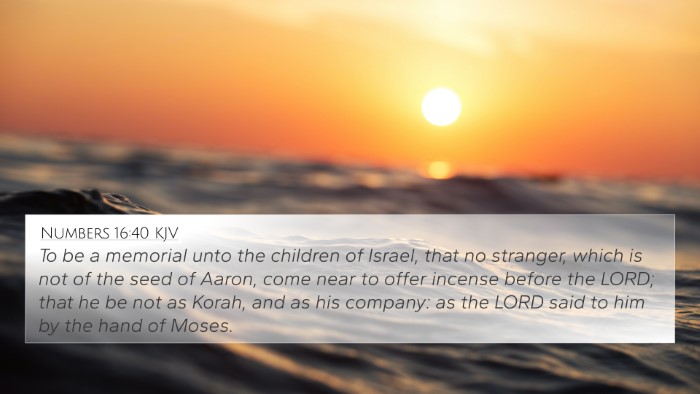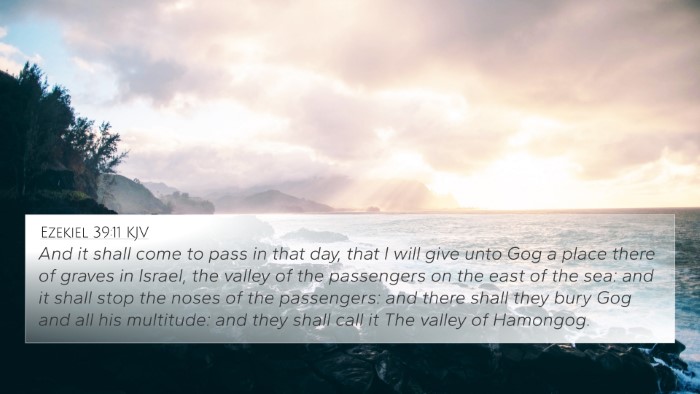Bible Verse Meaning of Esther 9:26
Esther 9:26 states:
"Therefore they called these days Purim, after the name of Pur; therefore because of all the words of this letter, and of that which they had seen concerning this matter, and which had come unto them."
This verse concludes the account of the Feast of Purim, established to commemorate the deliverance of the Jewish people from a plot to annihilate them, as narrated in the Book of Esther.
Summary of Biblical Commentary Insights
Various commentators provide profound insights into the meaning and significance of Esther 9:26:
-
Matthew Henry:
Henry emphasizes the victory and joy experienced by the Jews, which is memorialized through the festival of Purim. He highlights the providence of God in delivering His people and calls attention to the importance of faithfulness in recalling and celebrating their deliverance, indicating that rituals and observances serve to reinforce communal identity.
-
Albert Barnes:
Barnes points out the significance of the name "Purim," derived from "Pur," meaning "lot." This reflects the method Haman used to choose the date for the annihilation of the Jews, underscoring the ironic twist of fate whereby the very tool of destruction becomes a symbol of salvation. He notes that this reflection encourages believers to look for God’s hand in all circumstances, including trials and tribulations.
-
Adam Clarke:
Clarke elaborates on the establishment of the Feast of Purim as a lasting ordinance, indicating that it serves as an embodiment of gratitude and remembrance. He also emphasizes the social and historical context of the celebration, which not only serves the purpose of congregational remembrance but also enriches communal bonds among the Jewish people.
Thematic Connections and Cross-References
Esther 9:26 serves as a pivotal verse connecting various themes in the Bible. Below are noted themes and cross-references:
-
Deliverance:
- Psalm 34:19 - "Many are the afflictions of the righteous, but the Lord delivers him out of them all."
- Isaiah 43:2 - "When you pass through the waters, I will be with you; and through the rivers, they shall not overflow you."
-
Divine Providence:
- Romans 8:28 - "And we know that in all things God works for the good of those who love him."
-
Remembrance and Celebration:
- Exodus 12:14 - "This day shall be for you a memorial day, and you shall keep it as a feast to the Lord."
- Psalms 78:4 - "We will not hide them from their children, but tell to the coming generation the glorious deeds of the Lord."
-
Joy in Deliverance:
- Nehemiah 8:10 - "The joy of the Lord is your strength."
-
God’s Faithfulness:
- Hebrews 10:23 - "Let us hold fast the confession of our hope without wavering, for he who promised is faithful."
Conclusion and Reflection
Esther 9:26 encapsulates a moment of profound historical and theological significance for the Jewish people, emphasizing God’s deliverance and faithfulness. The establishment of the festival of Purim as a lasting ordinance encourages continual remembrance and celebration of God's intervention in dire circumstances. This verse and its surrounding context create rich opportunities for inter-Biblical dialogue and comparative analysis with other texts, illustrating the interconnectedness of Scripture and the steadfastness of God's promises throughout history.
For those studying the Bible, utilizing tools for Bible cross-referencing can deepen understanding and reveal thematic parallels across Scripture. Engaging with these insights encourages believers to see their own stories within the grand narrative of God’s faithfulness and deliverance.
